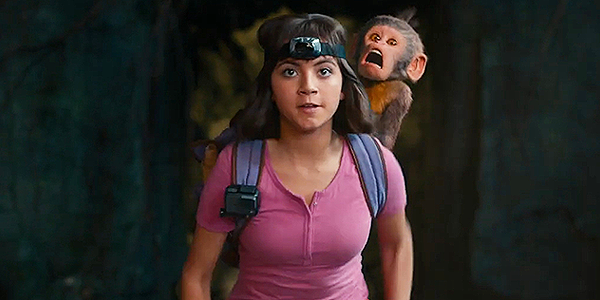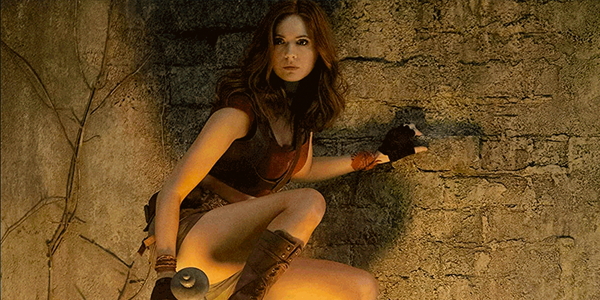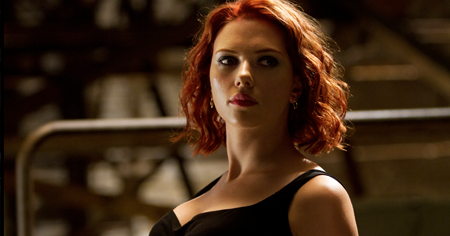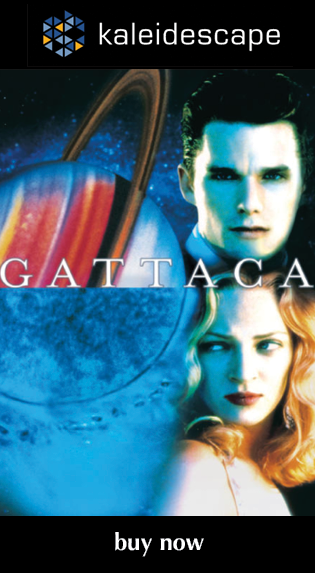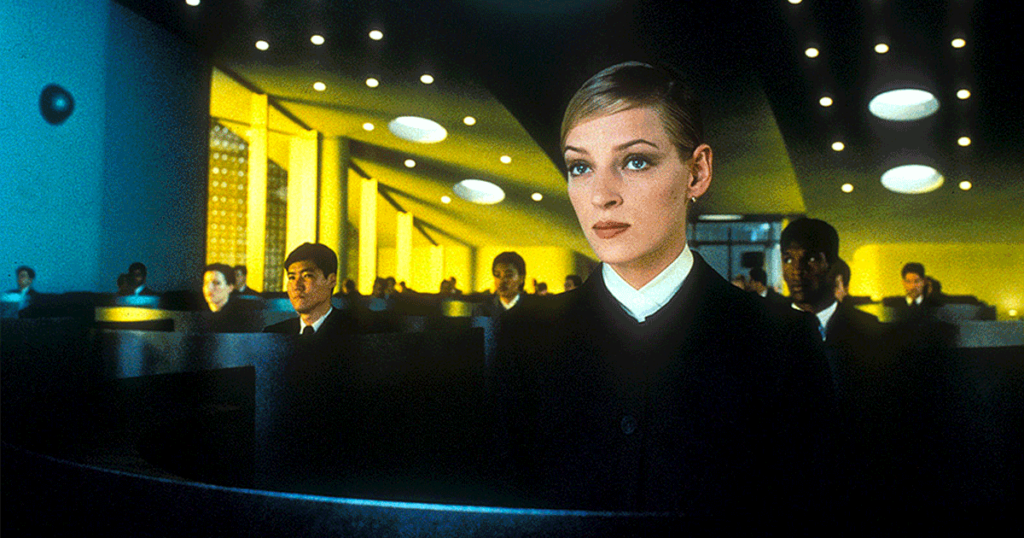
review | Gattaca
This 1997 tale of genetic elitism takes place in a future not so different from our present
by John Sciacca
updated July 28, 2023
Gattaca might seem an odd choice for Sony to select from its catalog to give a new 4K HDR restoration and transfer since the film has never really gained much traction and likely wasn’t on anyone’s list of titles that needed a 4K release. But its themes of institutional discrimination—based on genetics here rather than race—make it timely for viewing, and much of the science in this tale set in the “not-too-distant future” seems pretty much within grasp of our modern technology.
For a sci-fi film, Gattaca has almost no action or even special effects. Instead, it relies on the strength of its premise, and succeeds by just telling an interesting, compelling, and believable story performed by a superb cast. It also has a pretty compressed timeline, with the principal action taking place over a span of just a few days (with some flashbacks to fill in story points), which keeps it moving along.
The title comes from the letters used to label the nucleotide bases of DNA, being adenine, cytosine, guanine, and thymine. In this future, all humans are genetically-typed at birth, and any inherent flaws like a propensity for bi-polar disorder, heart conditions, and even a predicted lifespan are cataloged. This information, which is stored in a national registry, follows you through life, determining what you’re eligible to do. Those with any issues are considered “Invalid” and relegated to performing menial jobs, essentially locked out from being able to succeed.
To ensure children have the best options in life, genetic designers can help with designer DNA—for a price. With these modifications, they can not only eliminate any flaws or defects to make sure children are “Valid,” they can also give them additional skills and traits to excel, and even a lengthened lifespan. But, the better the modifications, the higher the cost. DNA is the commodity in this world, and everything from dating to job interviews is based on a quick scan of one’s genetic material.
Gattaca has a very cool and stylish look, feeling a bit noirish. Although set in the future, vehicles, the architecture, and even technology like watch phones and DNA readers have a retro look. The film doesn’t concern itself with trying to be too futuristic— there are no holograms, hover vehicles, or robots, which makes it easy to buy into.
Originally filmed on 35mm, this version is taken from a 4K digital intermediate. Images are clean throughout, with just a bit of grain and noise in some scenes like light-blue skies or some blown-out whites, and edges are nice and sharp as well.
While the movie doesn’t have the tack-sharp look of modern digitally shot films, it delivers loads of detail without having the grain scrubbed to rob it of its original film look. Closeups show the pinpoint detail and stitching in clothing, or pores and whiskers in actor’s faces. Only one scene really jumped out near the end of the movie where the grain was so cleaned away the images were startlingly modern looking.
Color is also used to give Gattaca its look. We have futuristic cool blues, metallic greys, and blacks in some scenes and rich golden hues in others. The HDR grade does a nice job of delivering deep, clean blacks along with nice shades and rich shadow detail, and with bright highlights and punchy greens from computer monitors and screens.
Gattaca also received a new Dolby TrueHD Atmos sound mix, and while most of the attention is focused on delivering clear dialogue, the additional channels were used to expand the mix and make it more immersive. During the opening, we see bits of fingernails and snips of hair falling on screen in slow motion, and these land and bounce with heavy bass thunks, and we get the delicate sounds of each hair landing and being placed exactly in space in the front of the room. The room also fills with little atmospherics to establish a scene, like hums inside a building, wind blowing, or machinery noise.
The height channels are used to expand the soundtrack by playing the reverb and echo from PA announcements in Gattaca’s offices, or lifting music from a jazz club or piano concerto up for a fuller presentation. The frequent rocket launches also flare up into the ceiling and deliver some nice low end from your subwoofer. Occasionally, the echoing and reverb of voices seems a bit overdone, such as when characters are talking inside Gattaca offices, but it never lasts long enough to be too distracting.
Gattaca might be the perfect sci-fi film for people who aren’t really too into sci-fi. At just 106 minutes, it is long enough to develop its story and characters, but not too long to wear out its welcome.
Probably the most experienced writer on custom installation in the industry, John Sciacca is co-owner of Custom Theater & Audio in Murrells Inlet, South Carolina, & is known for his writing for such publications as Residential Systems and Sound & Vision. Follow him on Twitter at @SciaccaTweets and at johnsciacca.com.
© 2025 Cineluxe LLC


